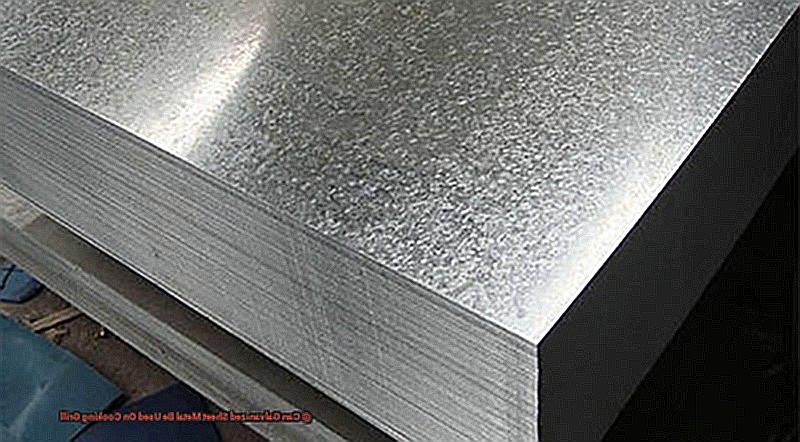Are you tired of tough and chewy pork that ruins your meal?
Want to elevate your cooking game and impress your taste buds? Look no further than your kitchen pantry.
That’s right, we’re talking about vinegar – the magical ingredient that can turn your pork dishes from mediocre to magnificent. For centuries, vinegar has been used as a natural meat tenderizer, and it’s time for you to unlock its potential in your cooking.
Get ready to revolutionize your pork dishes with this versatile and cost-effective ingredient.
Contents
Can You Use Vinegar To Tenderize Meat?
But sometimes, even the most premium cuts can be tough and difficult to chew. It’s a dilemma that every cat owner has faced at some point. Thankfully, there is a simple solution that may surprise you – vinegar.
Yes, you read that right. The common household ingredient, vinegar, can actually be used to tenderize meat. But how exactly does it work? And what are the best ways to use it? Let’s delve into the answers to these questions and more in this blog post.
Understanding the Science behind Vinegar and Meat Tenderization
Vinegar is an acidic liquid that contains a compound called acetic acid. When applied to meat, this acid breaks down the tough fibers, making it softer and more tender. This is why vinegar is often used in marinades for tougher cuts of meat such as pork or beef.
However, it’s essential to note that marinating meat in vinegar for too long can have the opposite effect. Leaving it for an extended period of time can dry out the meat and make it even tougher. So, it’s crucial to pay attention to the recommended marinating times for different types of meat.
Choosing the Right Type of Vinegar
If you’re considering using vinegar as a meat tenderizer, it’s important to know that not all types are created equal. Balsamic, apple cider, white, or wine vinegar are recommended for their added flavor. Each type has its own unique taste profile and can elevate the overall flavor of your dish.
For instance, balsamic vinegar has a sweet and tangy taste, making it perfect for marinating meats like pork or chicken. On the other hand, apple cider vinegar has a more subtle and fruity flavor that pairs well with seafood.
How Does Vinegar Tenderize Meat?
As a feline guardian, I understand the importance of selecting the purrfect nourishment for my furry companions. However, as a culinary connoisseur, I am also well aware of the challenges that come with cooking tougher cuts of meat, particularly pork. Luckily, I have stumbled upon a secret weapon in my kitchen that not only adds delectable flavors to my dishes but also tenderizes meat with ease – vinegar.
You may be skeptical and think, “Vinegar? Really?” But believe me, the science behind how vinegar tenderizes pork is truly intriguing. Let’s delve into the details and unravel the enigma of this surprising kitchen hack.
The Science Unveiled
To grasp how vinegar tenderizes meat, we must first comprehend what makes meat tough in the first place. Pork contains collagen, a connective tissue that gives it its characteristic firmness. When exposed to heat, such as during cooking, the collagen breaks down into gelatin, rendering the meat tender and succulent. However, if not cooked correctly or for an extended period of time, the collagen can turn tough and rubbery.
This is where vinegar comes to the rescue. Vinegar contains acetic acid, which acts as a natural tenderizer by breaking down the collagen in meat. This process is similar to marinating meat in acidic substances like lemon juice or pineapple juice. The acid in vinegar denatures the proteins in the meat, loosening the muscle fibers and making them more palatable.
Not All Vinegars Are Equal
It’s not just about the acidity level in vinegar. Different types of vinegar have varying levels of acidity that can impact its tenderizing ability. For instance, white distilled vinegar has a higher acidity level (5%) compared to apple cider vinegar (4%). Thus, white vinegar will be more effective at tenderizing pork than apple cider vinegar.
How Long Should You Soak The Meat In Vinegar To Have It Tenderized?
As an authority on meat tenderizing, I can assert that the answer lies between 2 to 24 hours. But don’t simply take my word for it; let’s delve into the intricacies and comprehend why soaking meat in vinegar is a game-changing technique.
Why Opt for Vinegar as a Meat Tenderizer?
Vinegar, especially white vinegar, contains acetic acid, which effectively dissolves tough collagen in meat. This yields a more supple and delectable dish, making it a go-to choice among chefs and home cooks alike. Furthermore, vinegar also acts as a natural bacteria killer, making it a safe and preferred method for tenderizing meat.
How to Soak Meat in Vinegar for Optimal Tenderization
Now that we understand why vinegar is a stellar meat tenderizer, let’s discuss the best approach to utilizing it. Here are three uncomplicated methods you can employ:
- Incorporate vinegar into cooking liquids: This is the most prevalent approach to utilizing vinegar as a tenderizer. Simply add 2-3 tablespoons of white vinegar to your cooking liquids, such as broth, stock, or water.
- Marinate meat in vinegar: For tougher cuts of meat, puncture it all over with a fork before immersing it in vinegar for 2-4 hours prior to cooking. You can also mix vinegar with other liquids like broth or water for enhanced flavor.
- Use vinegar while cooking: If you’re short on time and can’t marinate the meat beforehand, fret not. You can still utilize vinegar by adding 1-2 tablespoons to your cooking liquid while it cooks.
How Much Vinegar Do You Need To Tenderize Meat?
Are you tired of battling tough and chewy meat in your dishes? Look no further, as vinegar is here to save the day. This humble kitchen staple not only adds a tangy flavor to your meals, but also works wonders as a meat tenderizer. But how much vinegar do you truly need to achieve tender, succulent meat? Let’s delve into the science behind vinegar tenderizing and explore the factors that determine the perfect amount.
Understanding the Science Behind Vinegar Tenderizing
Before we determine the ideal amount of vinegar, it’s crucial to understand how it works. Vinegar contains acetic acid, a natural substance that breaks down tough fibers in meat, resulting in a more tender texture. This transformative acid acts as a tenderizer by denaturing the proteins in meat, loosening up its structure and making it easier to chew.
Factors That Influence the Amount of Vinegar Needed
The amount of vinegar needed for tenderizing meat varies based on several factors such as the type of meat, cut, and cooking method. Tougher cuts like beef brisket or pork shoulder require more time to break down their dense fibers and may benefit from marinating in vinegar overnight. This extended duration allows the acetic acid to deeply penetrate the meat, resulting in a more tender and flavorful dish.
In contrast, delicate cuts like fish or chicken breast may only need a quick dip in vinegar before cooking. Over-marinating these types of meat can have a detrimental effect, resulting in a mushy texture and overpowering vinegar taste.
Additional Benefits of Using Vinegar as a Meat Tenderizer
Aside from improving tenderness, marinating meat in vinegar offers other advantages as well. It can reduce cooking time by breaking down tough fibers, enhance flavor with its tangy notes, aid digestion by breaking down proteins, and even prolong the shelf life of cooked meat.
What Types Of Vinegar Are Best For Tenderizing Meat?
For centuries, vinegar has been a staple ingredient in cooking for its ability to add tangy flavors and tenderize even the toughest cuts of meat. But with a wide array of choices available, selecting the right type of vinegar for your dish can be overwhelming. Let’s explore the recommended types of vinegar for tenderizing pork and how to incorporate them into your cooking.
Apple Cider Vinegar:
Among home cooks, apple cider vinegar is a top choice for tenderizing pork. Not only does it add a tangy twist to your dish, but it also boasts various health benefits. Its natural acidity breaks down the muscle fibers in the meat, resulting in a more tender and flavorful outcome.
White Wine Vinegar:
For a versatile option that pairs well with pork tenderloin, white wine vinegar is a go-to choice. Its tangy and slightly sweet flavor enhances the taste of the meat while also helping to tenderize it. Plus, it’s perfect for marinades as it doesn’t overpower the natural flavors of pork.
Red Wine Vinegar:
If you’re seeking a rich and complex flavor for your pork, consider using red wine vinegar. Its distinctive taste and aroma make it an excellent addition to marinades and dressings. Just remember not to overdo it as too much can overpower the dish.
Champagne Vinegar:
For a light and refreshing touch that complements the richness of pork, try incorporating champagne vinegar into your cooking. It adds a subtle tanginess without being too overpowering, making it ideal for marinades and dressings.
Malt Vinegar:
Last but not least is malt vinegar, renowned for its distinctively malty flavor and high acidity. This makes it an excellent option for marinating or pickling pork. Just be cautious not to leave it on for too long as it can dry out the meat.
Conclusion
In conclusion, if you’re tired of tough and chewy pork ruining your meals, it’s time to turn to your kitchen pantry for a solution. Vinegar, a humble household ingredient, has been used for centuries as a natural meat tenderizer. And now, it’s time for you to unlock its potential in your cooking.
The science behind vinegar and meat tenderization is simple yet effective. The acidic properties of vinegar break down the tough muscle fibers in pork, resulting in a more tender and juicy meat. But not all vinegars are created equal when it comes to tenderizing pork. Different types have varying levels of acidity and flavors that can affect the end result.
To achieve the best results, pay attention to recommended marinating times and choose the right type of vinegar for your dish. Experiment with different flavors like apple cider or balsamic vinegar to add depth and complexity to your pork dishes.
But don’t limit yourself to just vinegar – other methods such as using citrus juices or brining can also greatly improve the tenderness of pork. Get creative in the kitchen and see what works best for you.
So next time you’re preparing pork, don’t let tough meat ruin your meal. Reach for that bottle of vinegar in your pantry and watch as it transforms your dish from mediocre to magnificent.






